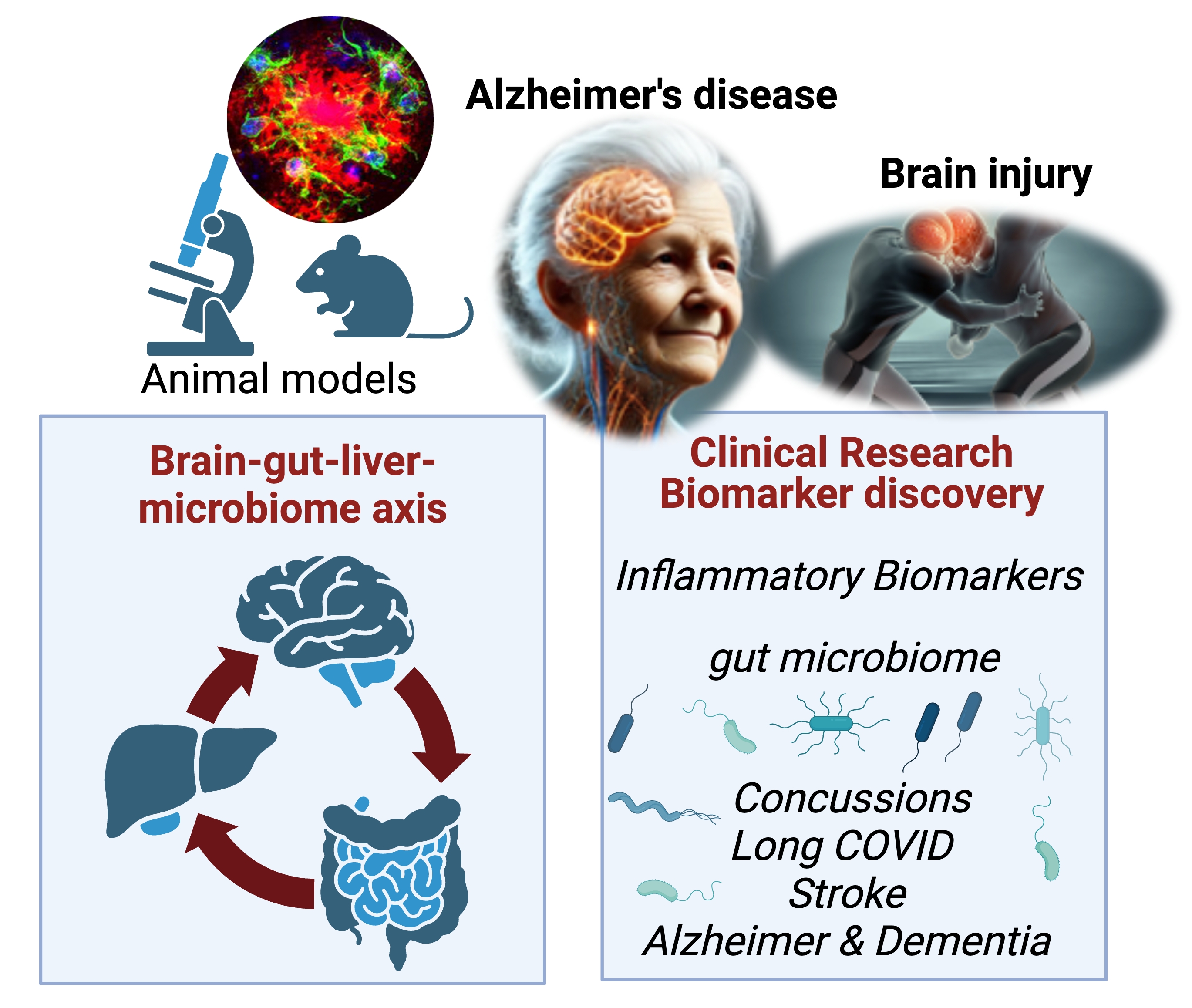You are here
Microbiota-driven approaches to resolve neuroinflammation
Speakers
Abstract
Chronic neuroinflammation is a hallmark of many neurological disorders, including traumatic brain injury (TBI), Alzheimer’s disease (AD), and Long-COVID-associated cognitive dysfunction. Recent advances have revealed that the gut microbiota is critical in regulating systemic and central immune responses via the gut-brain axis. Disruption of the microbiota, through dysbiosis, exacerbates neuroinflammatory processes, while targeted modulation of microbial communities offers a promising therapeutic avenue for brain repair. Our lab research explores microbiota-driven strategies to resolve neuroinflammation and restore motor and cognitive functions. Using preclinical models of TBI and AD, we investigate how interventions such as antibiotics, probiotics, and fecal microbiota transplant influence immune activation, glial reactivity, and cognitive recovery. Multi-omics analyses, including metagenomics, metabolomics, and inflammatory profiling, reveal key microbial taxa and metabolites associated with improved outcomes. Our findings demonstrate that restoration of microbial balance attenuates microglial activation, reduces pro-inflammatory cytokine expression, and enhances behavioral recovery. These results support microbiota-targeted therapies as a novel and translational approach to resolve neuroinflammation and improve neurological function. 

